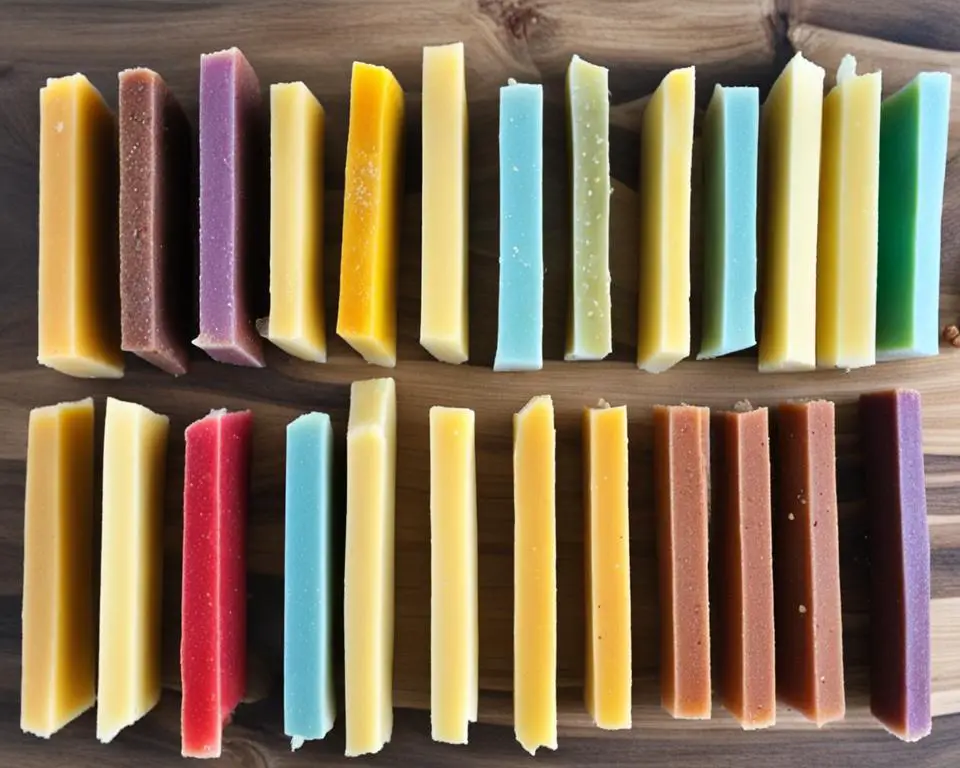Are you on a gluten-free diet and wondering if you can still enjoy your buttery favorites? Well, the answer is yes! Butter itself is gluten-free and safe for individuals with gluten intolerance or celiac disease.
In this section, we will explore the different types of butter and their gluten content to help you navigate the grocery store shelves. We will also provide you with the best gluten-free butter options and offer some alternatives to butter that you can add to your diet. So, keep reading to learn more about gluten-free butter options!
Understanding Gluten and Butter
Before we determine if butter is gluten-free, let’s understand what gluten is. Gluten is a protein found in wheat, barley, and rye. It is responsible for the elastic texture of dough and can pose health issues for individuals with gluten intolerance or celiac disease.
When it comes to butter, it is important to note that pure dairy butter, made from milk fat and salt, is gluten-free. However, other dairy products, such as flavored butter spreads, may contain gluten.
| Type of Butter | Potential Gluten Content |
|---|---|
| Pure Dairy Butter | No gluten content |
| Flavored Butter Spreads | May contain gluten |
If you have gluten intolerance or celiac disease, it’s important to read product labels carefully and opt for butter products that are certified gluten-free. Alternatively, you can choose from a variety of gluten-free spread options, including avocado spread, hummus, and nut butter.
When it comes to cooking and baking, using gluten-free cooking fats is important. Some options include olive oil, coconut oil, and avocado oil. Be sure to read labels carefully to ensure that the cooking fat is certified gluten-free.
Identifying Gluten in Butter Products
If you’re on a gluten-free diet, it’s important to know how to identify gluten-free butter products. Here are some tips on what to look for:
| Ingredients to Avoid | Gluten-Free Alternatives |
|---|---|
| Wheat | Gluten-free bread, gluten-free crackers |
| Barley | Quinoa, gluten-free oats |
| Rye | Brown rice, corn, potatoes |
Always check the label of your butter product to ensure it is gluten-free. Some butter products are seasoned or flavored and may contain gluten. Look for butter products that are specifically labeled gluten-free.
There are several butter options that are safe for individuals with gluten intolerance or celiac disease. These include:
- Plain, unsalted butter
- Organic butter
- Grass-fed butter
- Dairy-free butter alternatives made from nuts or vegetable oils
- Gluten-free baking butter alternatives, such as those made from coconut oil or avocado oil
Aside from butter, there are also other gluten-free food options that can be used as alternatives. Some examples include:
- Olive oil
- Coconut oil
- Cocoa butter
- Avocado oil
By choosing gluten-free butter and alternative options, you can continue to enjoy the rich taste of butter without worrying about gluten intolerance or celiac disease.
Conclusion
In conclusion, butter itself is gluten-free as it is made from milk fat and does not contain gluten proteins. However, it is important to be cautious of flavored or seasoned butter products that may contain gluten. It’s always best to check labels and choose butter products that are specifically labeled as gluten-free.
If you have gluten intolerance or celiac disease, it is recommended to opt for certified gluten-free butter to ensure your safety. Remember, there are also other gluten-free spread and cooking fat options available for you to enjoy in your gluten-free diet.
So go ahead and indulge in your favorite buttery treats, just make sure to choose products that are gluten-free and safe for your dietary needs!
FAQ
Is butter gluten-free?
Yes, butter is gluten-free. Butter is made from milk fat and does not contain gluten proteins.
Can I find gluten-free butter in the market?
Yes, there are gluten-free butter options available in the market. It is important to check the labels and choose butter products that are specifically labeled as gluten-free.
What should I look for when reading labels to identify gluten in butter products?
When reading labels, look out for any flavored or seasoned butter products as they may contain gluten. Make sure to choose butter that is labeled as gluten-free to ensure your safety.
Are there gluten-free alternatives to butter?
Yes, there are gluten-free spread options available as alternatives to butter. You can also use gluten-free cooking fats in your recipes if you prefer to avoid butter.
Can individuals with gluten intolerance or celiac disease consume butter?
Individuals with gluten intolerance or celiac disease can consume butter as long as it is gluten-free. It is recommended to opt for certified gluten-free butter to ensure their safety.
What are some other gluten-free food options for individuals with gluten intolerance?
Apart from butter, individuals with gluten intolerance can explore other gluten-free food options such as oils, ghee, plant-based spreads, and nut butters.

